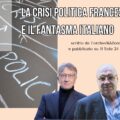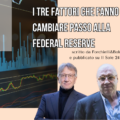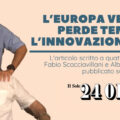As readers of this blog know, I had the opportunity to receive my graduate degree in business from Harvard. I also lived in the United States for many years, including Washington and Boston. My children and I both feel very emotionally connected to the United States. But for the most part, my time in the US has not been spent in the corridors of Congress and meeting with US government administration officials to discuss global trade and monetary policy. I recently had the opportunity to do just that. In my meetings I did not seek to influence US policy. Instead, my purposes were to better determine the current status and nuances of US policies, to gain greater clarity on the policy priorities of the multi-faceted US government, and to exchange perspectives with key US policy makers concerning these issues. During the visit I also had the honor of providing insights and to answer questions based on my experiences, especially the experiences I have gained in China over the last several years. For me, it was an intellectual feast. New friends were made, and I am honored to now have more key US policy makers who have asked me to include them as followers of this blog.
I won’t go into the details of each meeting, but over the course of the week, some of the highlights include meetings with Vice Chairman Shea of the bipartisan US China Economic and Security Commission, meetings with the chief of staff to the US Congressional China Caucus, meetings with staffers from the International Trade and Monetary Policy Subcommittee of the House Financial Services Committee, top staffers from the House and Senate Foreign Affairs Committees, the Senate Republican Policy Chairman’s office, from the office of Senator Graham (who is a key leader on issues pertaining to foreign currency manipulation and the current debate over the Trans-Pacific Partnership, “TPP”), the top Republican and Democratic trade policy Congressional staff from both House and Senate, a former top official with Department of Treasury with oversight over CFIUS (the Cabinet level Committee on Foreign Investment in the United States) and also private sector representatives like the former head of government affairs for GE Energy who has vast experience in the PRC , the former DC director of government relations for Huawei Technologies, and a former US China Economic and Security Commissioner and former top Commerce Department official who headed the International Trade Administration, Office of Market Access and Compliance and is now a professor of International Trade Law.
I came away from these meetings even more convinced of the importance of Washington as it relates to global trade and monetary policy. Some of these policy makers clearly have the PRC as their main focus. Of course, that is the Congressional mandate for the US China Economic and Security Commission. Similarly following PRC policy and news and disseminating that information to its members is also a main purpose of the US Congressional China Caucus. However, as I was leaving DC, my last meeting was with the group of the four top trade staff members in the US Congress (the top Republican and Democrat trade counsel from both the House and Senate) at a breakfast/panel discussion before a group of Washington professionals who also follow all aspects of trade policy. It was very interesting for me to gain a perspective about all of the various issues which are on the policy agenda of these staffers, and their current priorities. The meeting was conditioned on being “off the record”. However, I can definitely say that although China’s trade and investment practices are of great interest, and are watched very closely, presently China does not appear to be on their priority list for legislative and trade initiatives, at least for the next year. For example, the PRC is not being included in TPP discussions, which is a policy priority. But in other meetings, I learned that there is also a current discussion about changing the CFIUS statute, which was one of the proposals in the 2012 report to Congress from the US China Economic and Security Commission which Shea actually chaired. (Shea is the Commission’s Vice Chairman this year. The chairmanship rotates each year between the two parties. Shea is a Republican appointee. He was especially gracious to me, and suggested that I return in order to meet with more of his colleagues on the Commission.) While I was there, the Commission was putting together its final edits on the 2013 report to Congress. I very much look forward to reading that report, and its recommendations to Congress.
What is always true about Washington is that there is not just one powerful voice, but many, on almost every issue, and these voices are in constant competition. It is complicated, but it is certainly intellectually stimulating. I hope to spend more time in DC in the coming year, because it is critically important to be better informed on the direction/trends in US policy. Reading about these trends is no substitute to meeting with the key US policy makers and trying to gain a better, more nuanced understanding of what is behind the headlines we read every day.
















